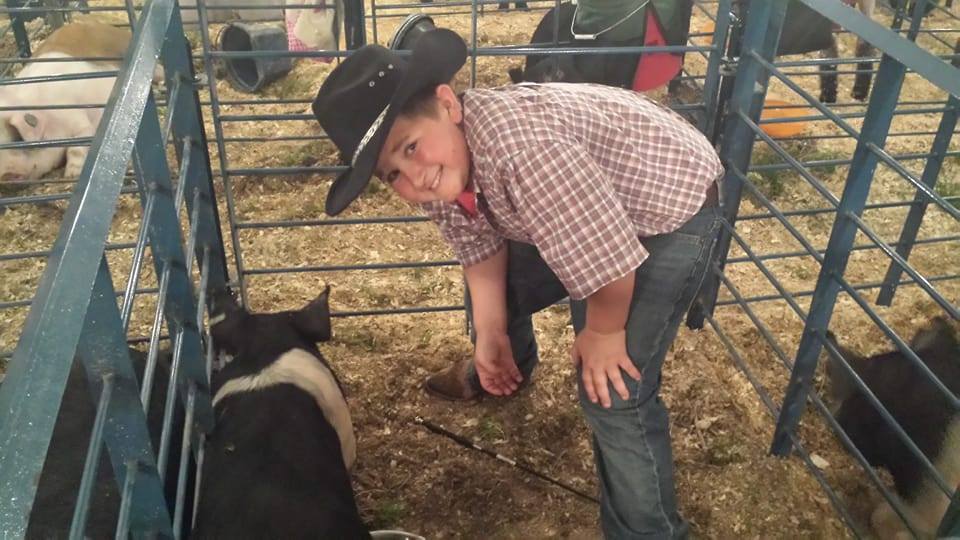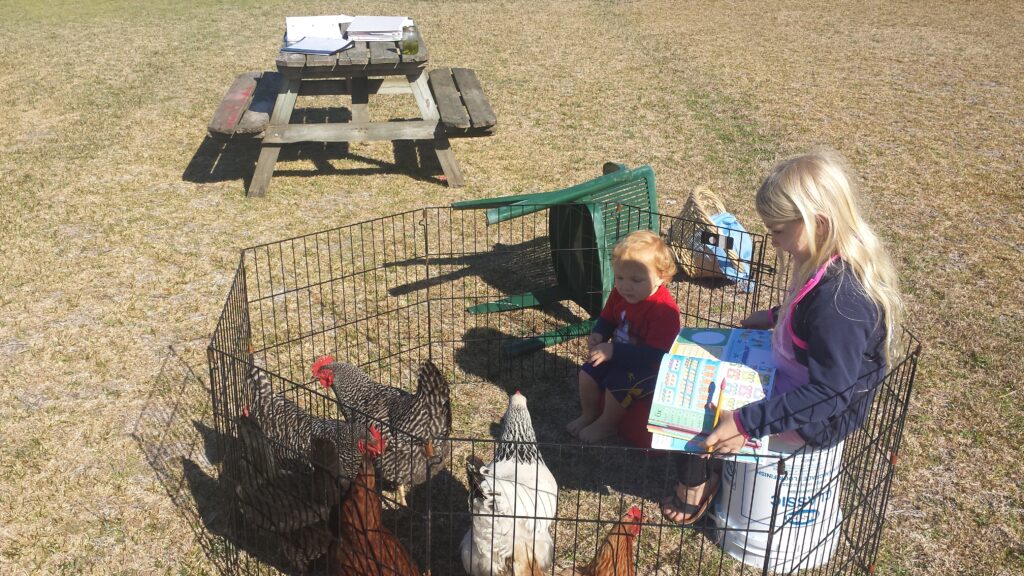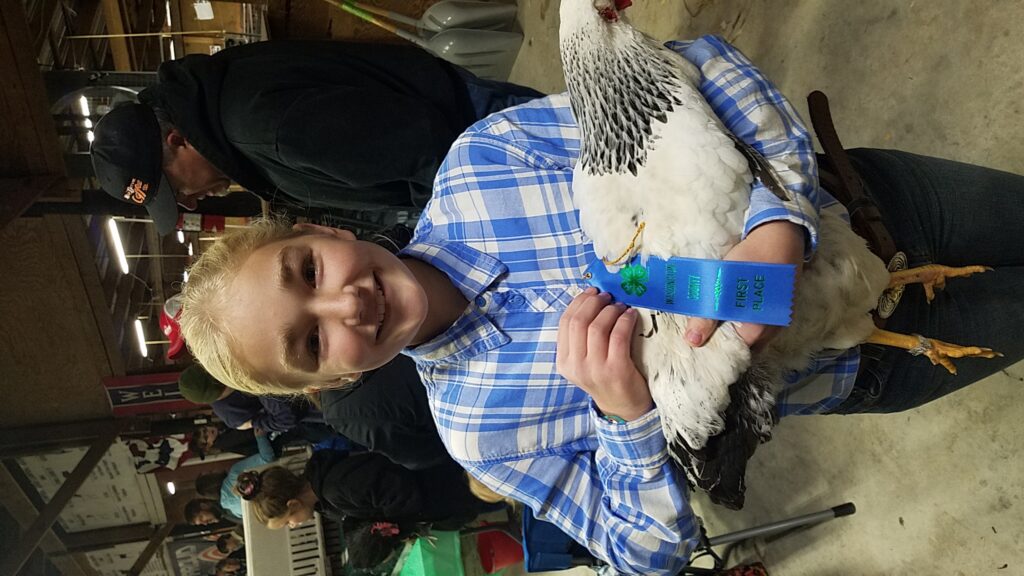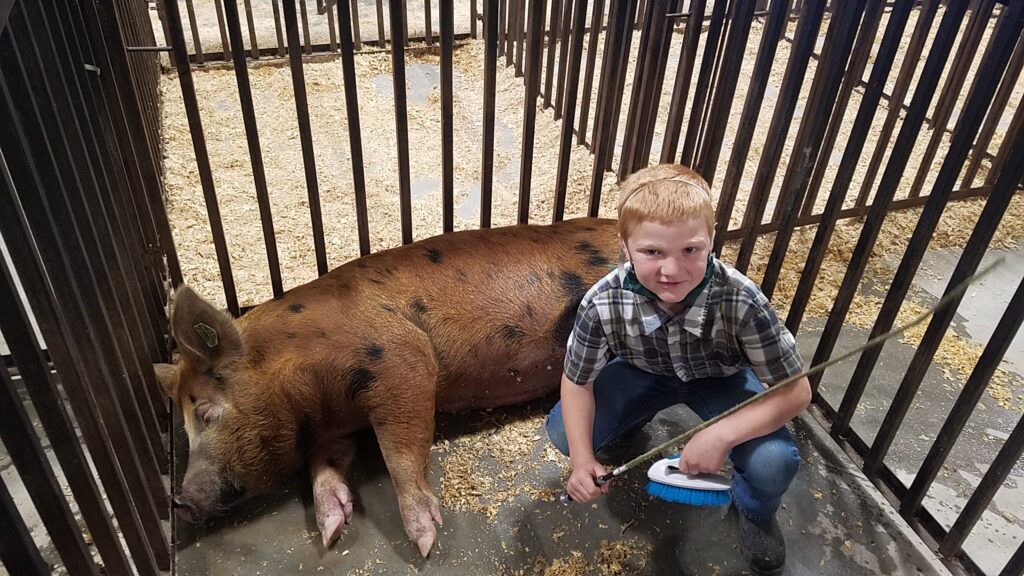The reasons why a family may choose to homeschool can be as numerous as the many different styles that homeschoolers can implement in their homes. They may choose to follow an eclectic path, classical, or Charlotte Mason. Some homeschooling families choose to include teaching and involve life skills that hearken back to the days of early settlers when the homeschoolers of today incorporate the homesteading lifestyle into their family’s lives.

What exactly is homesteading and how does one combine it with their homeschooling lifestyle?
Looking for a simple definition that fits today’s idea of homesteading, Wikipedia offers: “Homesteading is a lifestyle of self-sufficiency. It is characterized by subsistence agriculture, home preservation of food, and may also involve the small-scale production of textiles, clothing, and craft work for household use or sale.”
Since homeschooling is already centered around one’s home, making the connection between homeschooling and homesteading seems very natural for many families. Taking education beyond the books or computer, homesteading homeschoolers can help their children learn more about the world created by God and provide for their own families.
Our Interview with Dawn and her family’s experiences while homesteading and homeschooling
Q. Please tell us about your family and what homesteading means to you. When and why did you start?
A. For us homesteading is raising as much of our own food as we can, learning to preserve that food, and helping our children understand all that goes into growing/raising food and where that food comes from. We started because we wanted to be sure our children had a good understanding of where food comes from and because we wanted to save money on groceries.
Q. What is a typical day like for you and your family? What about an atypical day?
A. I am not sure if any two days are ever the same but our basic routine has the older children getting up in the morning and spending about an hour outside taking care of our animals and gardens before coming in for breakfast. Then we start our school day at about 9 am. There is another round of chores in the late afternoon/evening that varies depending on what else is going on that day.

Q. Please share your funniest homesteading story.
A. One funny story happened this spring. We were minutes away from leaving on a camping trip and I walked outside with my seven-year-old to do a few last-minute chores in our raised garden beds. I was shocked to be met at the bottom of the steps by 1 mama hen and 13 baby chicks. At first, I thought they had escaped from the pen, but quickly realized that these were too small to be the chicks we had in the pen. Mama Hen had escaped weeks before and was living under our deck. She laid a clutch of eggs, sat on them, and then hatched them all out without anyone ever being the wiser. It was quite shocking to suddenly find all these new babies but we got them safely into a chicken tractor and the mama took good care of them.
Another funny story is the day my son’s first pig escaped. It was not funny at the time but as we were chasing it around the yard I grabbed ahold of its neck. Only at over 300 lbs, it was stronger than I was and it pulled me forward on its back. It made me look like I was riding the pig.
Q. How does your family incorporate homeschooling into your homesteading lifestyle? (or) How does your family incorporate the homesteading lifestyle into homeschooling?
A. Homeschooling gives us the time and flexibility to homestead. We have the ability to get the chores done and animals cared for before we start school and to be home to handle any problems that might arise.

We incorporate homesteading into our school work as a part of life skills and science. My children learn so much about the world around them through caring for animals and growing vegetables. It also teaches responsibility and work ethic.
This year it is a bit more formal for my son as he is taking both Horticulture and Animal Science as electives and he will be using our homestead for his hands-on learning.
Q. How would you characterize or describe your homestead? Do you breed and raise animals? If so, which ones? Do you raise crops? Can you share about your farm?
A. We started with a few chickens in the backyard and a small garden plot. Now we keep chickens, ducks, and guineas year-round. We also have goats that are permanent. During part of the year we have pigs that my children raise for the livestock show and then we have them processed to provide meat for our family. We do turkeys the same way, only we process them ourselves. In addition, my son started raising meat sheep a few months ago. And my son is working on starting to breed chickens and sell the chicks.
We have two gardens and two raised beds for vegetables. My oldest son manages the two big gardens and I tend the raised bed along with my younger sons. This year we had enough cucumbers to can our own pickles and enough extra tomatoes to can tomatoes to be used this winter. We have been canning for years but often have to buy extra produce in order to have enough for canning so it was exciting to have enough extra this year.
Q. What chores do you incorporate into your homeschool schedule?
A. The children feed and water the animals, clean the pens, plant, weed, water, and harvest in the gardens. They also collect eggs each day.
Q. What life skills are taught in your homeschool due to your homesteading lifestyle?
A. Canning, Cooking, Responsibility, Hard Work, Animal Husbandry

Q. What recommendations would you have for someone who wishes to adapt their homeschooling lifestyle to incorporate homesteading?
A. Start small and do not try to do everything at once or it gets overwhelming. Chickens are the easiest animal to start with and a small garden plot or a raised bed. Also, let the homesteading count for some of your science or handicraft time and not just be something else you have to do.
Q. Are there any unique homeschooling opportunities afforded to you because you are homesteading?
A. I feel like my children have a far better understanding of where food comes from and the work that goes into it than many adults. They also have the privilege of eating the results of all of their hard work. They love to plan a meal that involves the food that we grew or raised.
It has also given them the opportunity to start businesses. My son sells our extra chicken eggs and is beginning to raise chicks for sale. My daughter sells our extra herbs.

Q. Is there anything else you would like to share regarding homesteading?
A. My best advice is to start small, learn from those around you (also 4-H and your local cooperative extension are great resources) and enjoy the process. It is a lot of work but we think that much like the work of homeschooling, the rewards are far greater.
Don’t forget to stop by The Old Schoolhouse® booth and visit with the publishers, Paul and Gena Suarez! As a proud sponsor of the conference, The Old Schoolhouse® has four free tickets to give away to one winner! Will it be you? Enter before the end of the day on 9/28 for a chance to win.
a Rafflecopter giveaway

1 thought on “Homesteading and Homeschooling”